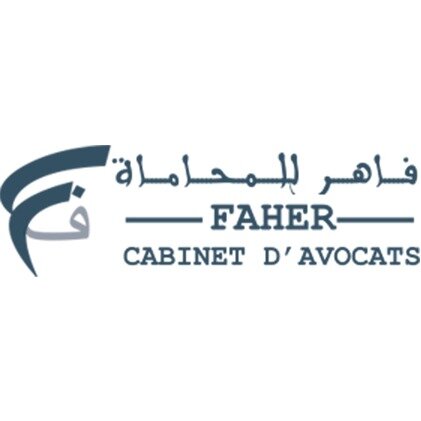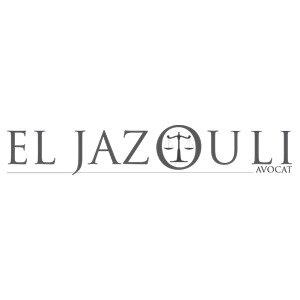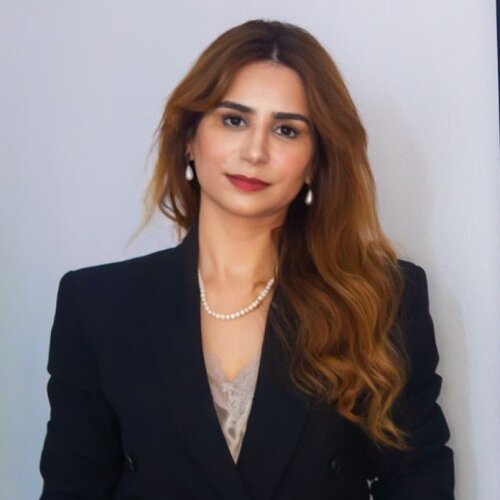Best Private Client Lawyers in Morocco
Share your needs with us, get contacted by law firms.
Free. Takes 2 min.
Or refine your search by selecting a city:
List of the best lawyers in Morocco
About Private Client Law in Morocco
Private Client law in Morocco encompasses legal services focused on the needs of individuals and families, usually relating to personal wealth, inheritance, real estate, tax, succession, estate planning, and family law. These issues often require respecting and navigating Moroccan law, including civil law provisions and Sharia-based inheritance rules. Private Client lawyers provide guidance on managing, protecting, and transferring assets while ensuring compliance with local legislation.
Why You May Need a Lawyer
Many situations may prompt individuals or families to consult a Private Client lawyer in Morocco. Common scenarios include:
- Planning for inheritance or drafting a will conforming to Moroccan law
- Managing or resolving estate disputes between heirs
- Dealing with complex family arrangements, including cross-border families
- Transferring ownership of property or business
- Navigating Moroccan real estate law when purchasing or selling property
- Seeking advice on tax implications related to inheritances and asset transfers
- Setting up trusts or foundations
- Protecting vulnerable family members or minors through guardianship structures
Private Client matters can often be challenging due to cultural, legal, or religious considerations unique to Morocco. Legal advice helps avoid costly mistakes or protracted disputes.
Local Laws Overview
Moroccan Private Client law is shaped by a mix of civil law and Islamic (Sharia) tradition. Some key aspects to consider include:
- Inheritance (Mirath): Inheritance is heavily regulated, with specific shares allotted to family members under the Moroccan Family Code (Moudawana). Non-Muslims and foreigners may be subject to different regulations, but Moroccan law generally applies to property located within Morocco.
- Wills: Muslims are allowed to bequeath up to one third of their estate to non-heirs through a will. The rest is distributed according to fixed shares. Non-Muslims may have more leeway, but local property can still fall under Moroccan succession rules.
- Real Estate Ownership: Foreigners face restrictions on owning agricultural land, and formal procedures must be followed for transfers or registrations.
- Taxation: Morocco applies inheritance and gift taxes, as well as capital gains taxes on property transfers. Legal structuring can minimize tax liabilities and ensure compliance.
- Family Arrangements: The law sets out rules on marriage, divorce, guardianship, and child custody, which affect inheritance and family asset management.
- Cross-Border Issues: Dual nationality, marriage to foreigners, or assets held abroad add complexity and often require coordinated legal strategies.
Frequently Asked Questions
What is the main law governing inheritance in Morocco?
Inheritance in Morocco is mainly governed by the Family Code (Moudawana), which incorporates both civil and Sharia-based rules, especially regarding compulsory shares for family members.
Can I leave my entire estate to anyone I want?
Muslims can only bequeath up to one third of their estate to non-heirs. The rest is allocated by law. Non-Muslims may have more flexibility but must comply with local regulations if the property is in Morocco.
How can foreigners inherit or own property in Morocco?
Foreigners can inherit property, but some restrictions apply, especially for agricultural land. Legal representation is often required to navigate local rules and registration processes.
Do I need a Moroccan will if I already have one from another country?
It is strongly recommended to prepare a will in Morocco or ensure your foreign will is recognized locally, especially if you own property or assets in Morocco. Otherwise, distribution may default to Moroccan succession law.
Are there taxes on inheritance in Morocco?
Yes. Inheritance and gift taxes may apply depending on the relationship between the deceased and the heirs, as well as the value and nature of the assets involved.
How are family-owned businesses transferred in Morocco?
Transfers are governed by a combination of Moroccan business, civil, and family law. Careful planning is needed to address inheritance shares, corporate structures, and tax implications.
What happens if there is a dispute between heirs?
Disputes are settled according to the Family Code, and may require mediation, court proceedings, or arbitration. A Private Client lawyer can help negotiate settlements or represent you in court.
Can women inherit equally with men in Morocco?
Under Moroccan law, inheritance shares for women are generally lower than for men in certain categories, based on Sharia guidelines. However, individual circumstances may affect the precise shares.
Is it possible to set up a trust or foundation in Morocco?
Moroccan law does not recognize Anglo-Saxon trusts, but there are alternatives such as foundations and certain contractual arrangements that can serve similar purposes for asset protection and philanthropy.
What documents are needed to manage or transfer an estate?
Key documents include proof of death, identification documents, family records, property titles, tax clearance certificates, and a valid will. Consulting a lawyer will help ensure all paperwork complies with local law.
Additional Resources
If you need further assistance or information regarding Private Client issues in Morocco, consider contacting the following:
- Ministry of Justice: For information on succession, wills, and judicial procedures.
- Moroccan Bar Association: For referrals to qualified Private Client lawyers.
- Notaries: For help with property transfers, wills, and notarization of legal documents.
- Real Estate and Tax Authorities: For information on property registration, taxation, and compliance.
- Family Affairs Courts: For resolving inheritance or family disputes.
Next Steps
If you require legal assistance in Private Client matters in Morocco, consider the following steps:
- Identify and clarify your needs, such as inheritance, wills, asset transfer, tax advice, or family matters.
- Collect all relevant documents, including property deeds, family records, and any existing wills or legal agreements.
- Consult a specialist Private Client lawyer licensed in Morocco. An initial consultation can help you understand your rights, obligations, and the best course of action.
- If you are an expatriate or have cross-border interests, inform your lawyer to ensure your planning is internationally compliant.
- Follow your lawyer's instructions to complete required legal formalities, filings, or court actions.
Acting proactively and seeking professional legal advice early can help you secure your family's interests and navigate Moroccan law with confidence.
Lawzana helps you find the best lawyers and law firms in Morocco through a curated and pre-screened list of qualified legal professionals. Our platform offers rankings and detailed profiles of attorneys and law firms, allowing you to compare based on practice areas, including Private Client, experience, and client feedback.
Each profile includes a description of the firm's areas of practice, client reviews, team members and partners, year of establishment, spoken languages, office locations, contact information, social media presence, and any published articles or resources. Most firms on our platform speak English and are experienced in both local and international legal matters.
Get a quote from top-rated law firms in Morocco — quickly, securely, and without unnecessary hassle.
Disclaimer:
The information provided on this page is for general informational purposes only and does not constitute legal advice. While we strive to ensure the accuracy and relevance of the content, legal information may change over time, and interpretations of the law can vary. You should always consult with a qualified legal professional for advice specific to your situation.
We disclaim all liability for actions taken or not taken based on the content of this page. If you believe any information is incorrect or outdated, please contact us, and we will review and update it where appropriate.
Browse private client law firms by service in Morocco
Morocco Attorneys in related practice areas.
Browse private client law firms by city in Morocco
Refine your search by selecting a city.













